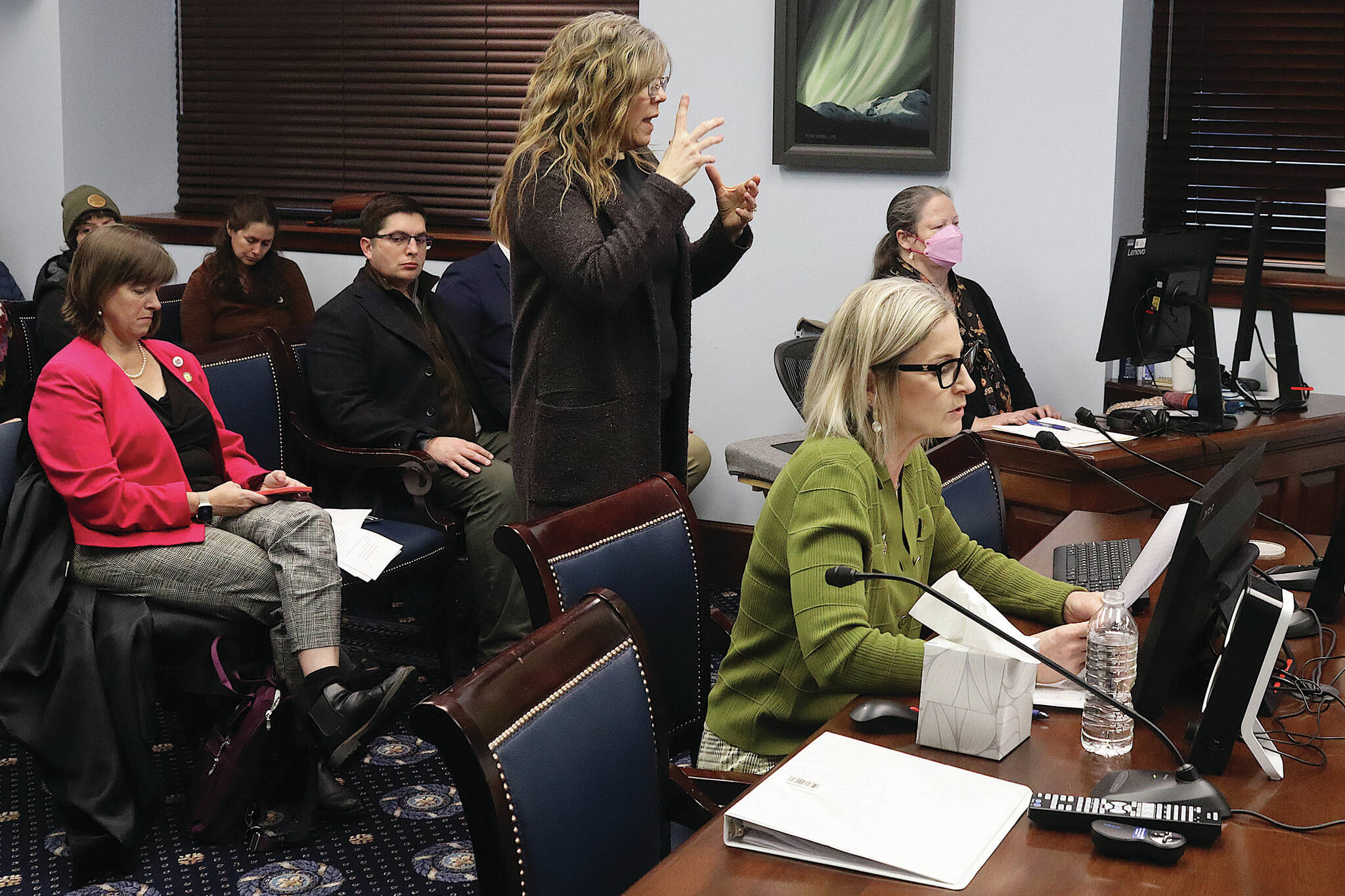Kenai Peninsula teachers and parents were among the voices members of the Alaska House Rules Committee heard during a Saturday hearing on a sweeping education bill that lasted for nearly eight hours.
Among other things, the bill would increase the base student allocation by $300, provide lump sum payments for eligible certified teachers and allow people trying to start a charter school to apply directly to the State of Alaska, rather than to their local school board.
The same bill would also add to the scope of the Department of Education and Early Development’s collaboration with the Alaska Department of Labor and Workforce Development to collect data on each high school’s graduating class and require the department to establish and operate a centralized program for students whose primary language is American Sign Language.
The bill also incorporates two separate education initiatives put forth by Rep. Justin Ruffridge, R-Soldotna. The first, which Ruffridge has introduced as H.B. 139, would fund school districts at the same level for students in correspondence programs, such as home-schools, as for brick-and-mortar students.
The second, H.B. 144, would eliminate the sunset provision on Alaska’s education tax credit program, through which private businesses are encouraged to make charitable contributions to schools. Currently, the program must be regularly renewed, or else it expires. The proposed legislation would allow the program to run indefinitely under the structure most recently approved by lawmakers.
Between people who called in to Saturday’s hearing in Juneau and others who submitted written testimony in advance, more than a dozen comments were made by residents of the Kenai Peninsula on S.B. 140. Most said the $300 increase to the amount of money school districts receive per student wouldn’t go far enough, while also questioning the value of one-time bonuses only given to certain employees.
Sarah Brewer said she has two children in and is currently a certified substitute for the Kenai Peninsula Borough School District, and opposes S.B. 140 in its current form. The proposed $300 increase, she said, falls short of the more significant increase needed. The lump sum proposed for educators does not benefit all staff equally and the bill does not address teacher retirement.
“As is, this simply kicks the can down the road for a bit longer, but does nothing to address the systemic issues our educators and families are facing,” Brewer wrote.
Dave Peck, of Kenai, said he opposes increasing the BSA until it is clear where the additional funding will come from and until Alaska’s education outcomes improve.
“Until we solve some of these basic problems I’m in favor of continuing to fund education on a pay as you go basis vs increasing locked in funding formulas,” Peck said.
KPBSD staff shared how an increase in school funding would impact their classrooms and students.
Luke Herman, a teacher at Soldotna High School, said he was testifying on behalf of his students, who he said each year do a project in which they identify barriers to their success. Diminishing opportunities, he said, has been a key theme, despite Soldotna High School being KPBSD’s largest school.
“What we’re seeing is a rapidly deteriorating school system, rapidly deteriorating communities and, as a result, rapidly deteriorating outcomes,” Herman said. “We need resources to address this or this will continue. We need proper funding. This isn’t an either/or issue.”
Sandra Barron, a teacher and intervention specialist at Moose Pass School, called on lawmakers to increase the BSA by $1,413 — the amount it is estimated the BSA must be increased for it to have kept pace with inflation since fiscal year 2017. Too many teachers, she said, are leaving the profession and a one-time bonus won’t fix a “revolving door” of staff.
“Many schools have fewer teachers and support staff and they’re all doing more and finding it difficult to provide our students with everything they need,” Barron said. “We just — we love our jobs, we’re dedicated (and) people are going above and beyond because of those little, precious human beings and their future.”
The two unions representing KPBSD staff also spoke during Saturday’s hearing.
LaDawn Druce is president of the Kenai Peninsula Education Association, which represents the district’s certified staff. Her organization is also calling for a full $1,413 increase to the BSA, which she said is needed more than one-time bonuses to attract and retain teachers.
“This is not a path to retention of teachers,” Druce said. “It’s, in some ways, an insult because it does not, as others have said, include other educators within our schools that are vitally important … We need to invest in a meaningful increase to the base student allocation to stave off a mass exodus of teacher and families, and our future workforce.”
Susanna Litwiniak agreed. She’s president of the Kenai Peninsula Educational Support Association, which represents the district’s non-certified staff who wouldn’t be eligible for the one-time payments proposed by S.B. 140.
“The solution that this bill proposes is to give teachers a one-time bonus and to make a small increase to the BSA,” Litwiniak said. “This is not a sustainable solution. How does it help special education aides or any of our hard-working education support professionals who are on the front line? How does this help our students? It’s like trying to fill a cannonball-sized hole in our boat with a baseball.”
As reported by the Alaska Beacon, the version of Senate Bill 140 voted out of committee on Saturday is expected to be taken up in the Alaska House of Representatives later this week. More information about the bill can be found on akleg.gov.
Reach reporter Ashlyn O’Hara at ashlyn.ohara@peninsulaclarion.com.

